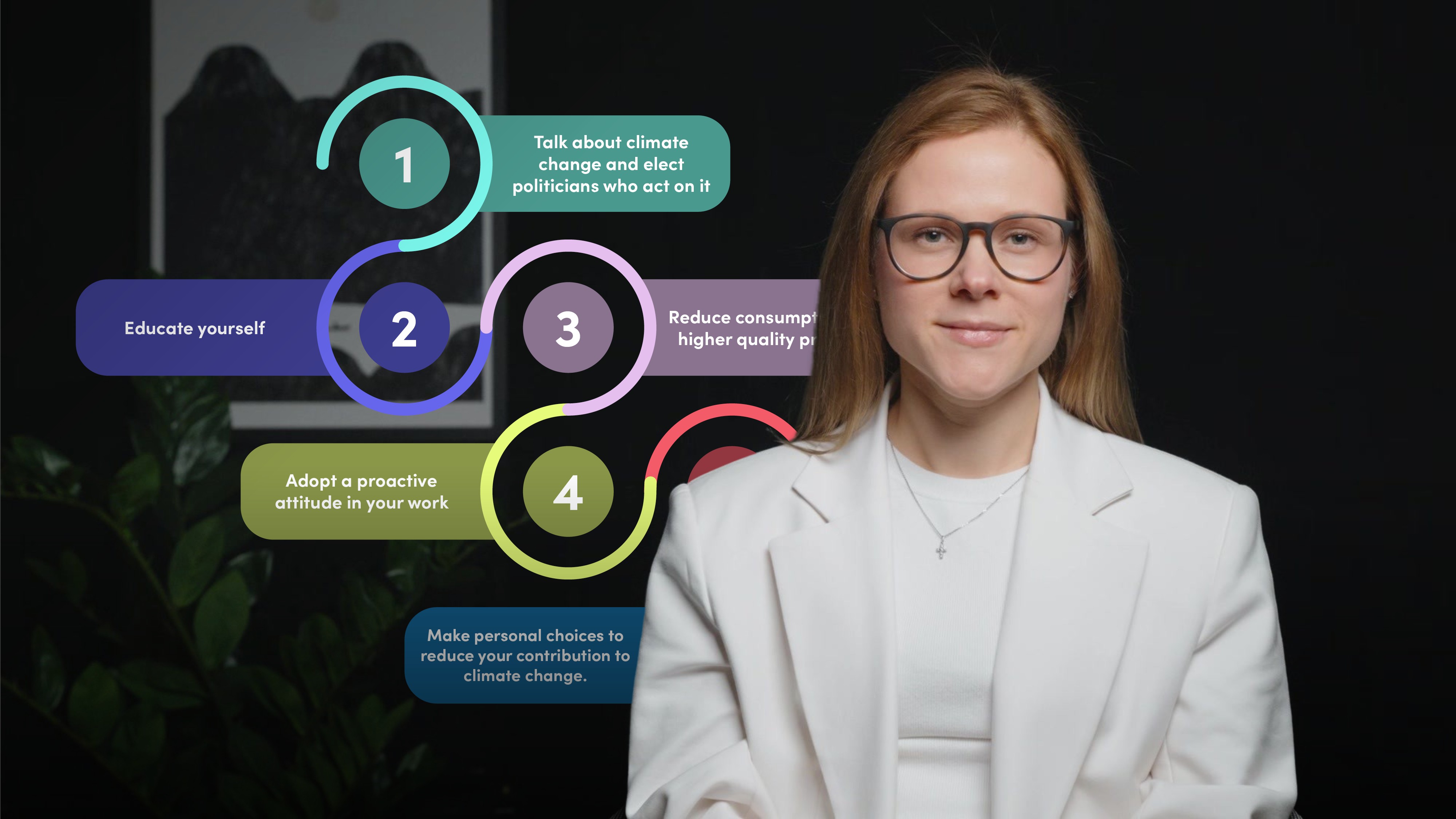
Collective Responsibility in Achieving Net Zero

Elena Doms
15 years: Climate Advisor and Advocate
In this video, Elena explains how governments, corporations, and individuals can collectively work towards achieving a 1.5 degrees pathway and make a positive impact in the fight against climate change.
In this video, Elena explains how governments, corporations, and individuals can collectively work towards achieving a 1.5 degrees pathway and make a positive impact in the fight against climate change.
Subscribe to watch
Access this and all of the content on our platform by signing up for a 7-day free trial.

Collective Responsibility in Achieving Net Zero
9 mins 35 secs
Key learning objectives:
Understand what corporates can do to help stay on a 1.5 degrees pathway
Understand what governments can do to help stay on a 1.5 degrees pathway
Understand what individuals can do to help stay on a 1.5 degrees pathway
Overview:
To reduce emissions, companies can start by measuring their emissions and setting net-zero targets, and then taking action to reduce their emissions through existing solutions and technologies. They can also work with their supply chain and partner ecosystem to achieve a net-zero transition for society as a whole. Governments play a key role in this transition by setting clear 1.5 degree plans, removing fossil fuel subsidies, creating legislation that supports net-zero transition, and focusing on the well-being of citizens. Individuals can talk about climate change, educate themselves, reduce consumption, adopt a proactive attitude in their work, support NGOs working on nature protection and restoration, and make personal choices such as a plant-based diet, avoiding air travel, living car-free, and having smaller families.
Subscribe to watch
Access this and all of the content on our platform by signing up for a 7-day free trial.
What can governments do to help us reach a 1.5 degrees pathway?
Governments can help us reach a 1.5 degrees pathway by setting clear 1.5 degree plans with intermediate targets and following them, removing fossil fuel subsidies, and transitioning to renewable energy.
They can also create legislation that supports net-zero transition, focus on the well-being of citizens instead of infinite economic growth, and strengthen climate education to nudge people towards sustainable choices.
Protecting and restoring nature is crucial, as it absorbs carbon and provides economic value through food, climate, and health. Governments can work together with other countries to speed up the net-zero transition, lobby for net-zero internationally, and support countries most vulnerable to climate change.
What can corporates do to help us reach a 1.5 degrees pathway?
To help reach a 1.5 degrees pathway, companies can start by calculating their emissions, setting net-zero targets, and taking action to reduce emissions through existing solutions and technologies.
Providing services instead of products, designing products for circularity, investing in low-emissions technologies, and transitioning energy production and use to renewable sources are some examples. Companies should also work with their supply chain, clients, and investees to help them achieve net-zero, and consider working with their partner ecosystem to achieve a net zero transition for society as a whole. Building collaborations and encouraging partners and customers to work together on regenerating nature can also make a difference.
What can individuals do to help us reach a 1.5 degrees pathway?
To help us reach a 1.5 degrees pathway, individuals can talk about climate change, elect politicians who act on it, educate themselves to make better choices, and reduce consumption by opting for fewer high-quality items.
They can adopt a proactive attitude at work to drive change and introduce new projects, support or volunteer for NGOs working on nature protection and restoration, and make personal choices to reduce their contribution to climate change.
Researchers suggest four most effective options: adopting a plant-based diet, avoiding air travel, living car-free, and having smaller families. Every individual can contribute to a societal change by making small but meaningful changes.
Subscribe to watch
Access this and all of the content on our platform by signing up for a 7-day free trial.

Elena Doms
There are no available Videos from "Elena Doms"





























